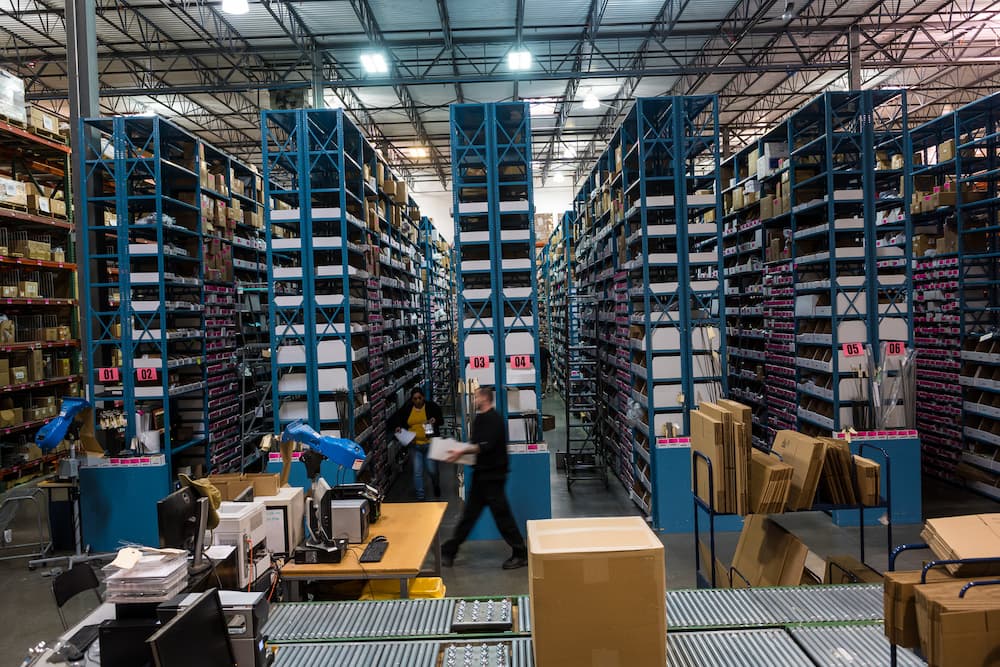How AllPoints is Tackling Supply Chain Issues
March 7, 2022

In addition to the labor shortage, health concerns and rising inflation, the foodservice industry can add supply chain issues to its list of complications post-pandemic. Some restauranteurs are finding growth stymied not from a lack of consumer demand but from a lack of equipment.
Likewise, the parts industry is experiencing unprecedented delays and challenges as vendors are struggling to source the materials they need.
In short, everyone is experiencing dark days with supply chain issues. AllPoints, however, is managing through this crisis and shining by staying one step ahead of the curve.
Here's how we're taking a proactive approach to meeting our customers' needs.
We're intentionally increasing our inventory
While most in the industry are cutting inventory and inventory-related expenses, AllPoints has instead invested more to grow ours to meet our customers' demand.
With a significant investment, we've increased our already vast inventory by 24%. We've also streamlined our distribution processes to ensure our customers get the parts they need quickly.
We haven't just expanded in one area or category, however. We are keeping a wider breadth of different SKUs in inventory than before the pandemic.
We want to do the best job we can providing you with the parts you need when you need them, and we believe increasing our inventory is one initiative we can take to make that happen.
Even during this complicated supply chain landscape, our sourcing team is still working to ensure your parts shopping experience is as consistent as you've come to expect from AllPoints. For example, we're still sourcing hard-to-find parts and ensuring parts quality remains high.
We're building relationships with our vendors
One of the most important aspects of our proactive approach to the supply chain issues is building relationships with our vendors. Relationship building enables more effective collaboration and is mutually beneficial. It also helps keep AllPoints top of mind with our vendors.
Weekly meetings
We hold weekly meetings with our top vendors to highlight high-priority backorders and other important aspects of our partnership.
We utilize a complex demand planning system that both analyzes spikes and trends and predicts items that may be a problem sourcing in the future. We share that data-driven, predictive insight with our vendors, treating them like true partners.
By differentiating between temporary spikes in demand and sustained growth, we ensure our vendors clearly understand what we'll be requiring from them and can adjust to meet those needs.
DFS consolidation
Another benefit AllPoints brings to the supply chain crisis is the ability to consolidate our vendor feedback with our sister companies under the Diversified Foodservice Supply (DFS) umbrella. By merging our vendor feedback, we not only wield extra leverage but also simplify the vendor experience.
This consolidation and bulk ordering has the added benefit of keeping costs low - a savings we pass on to our customers.
Vendor benefits
This improved collaboration and expanded visibility allows vendors to also grow their businesses and be profitable. Speculating about what AllPoints will demand of them can be risky and costly. We're removing the guesswork during this time of crisis and keeping our vendors in the loop as much as possible.
Our smart, proactive investments help everyone, from vendors to customers and distributors.
We're embracing creative solutions
We realize there is no "back to normal" that we're experiencing after the pandemic. We're instead using this opportunity to streamline many of our processes, increase our inventory and build our relationships with both vendors and distributors.
Getting through the supply chain crisis is going to take creative solutions, a proactive attitude and patience. We're leading the way.
